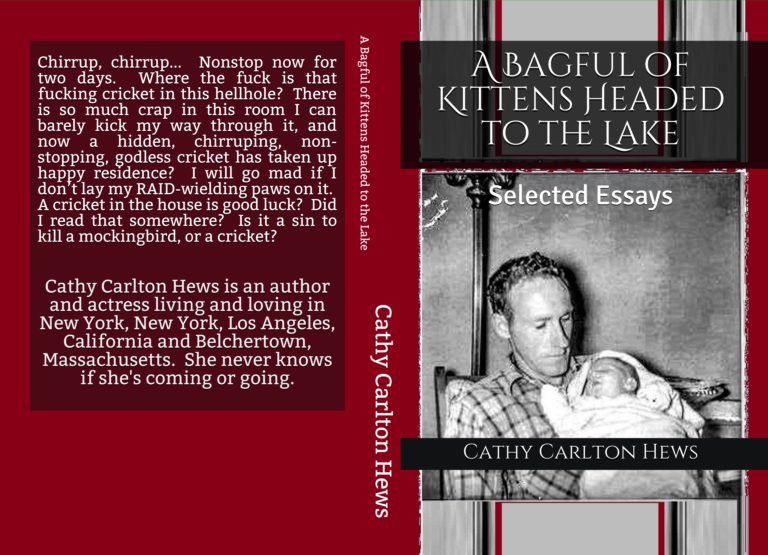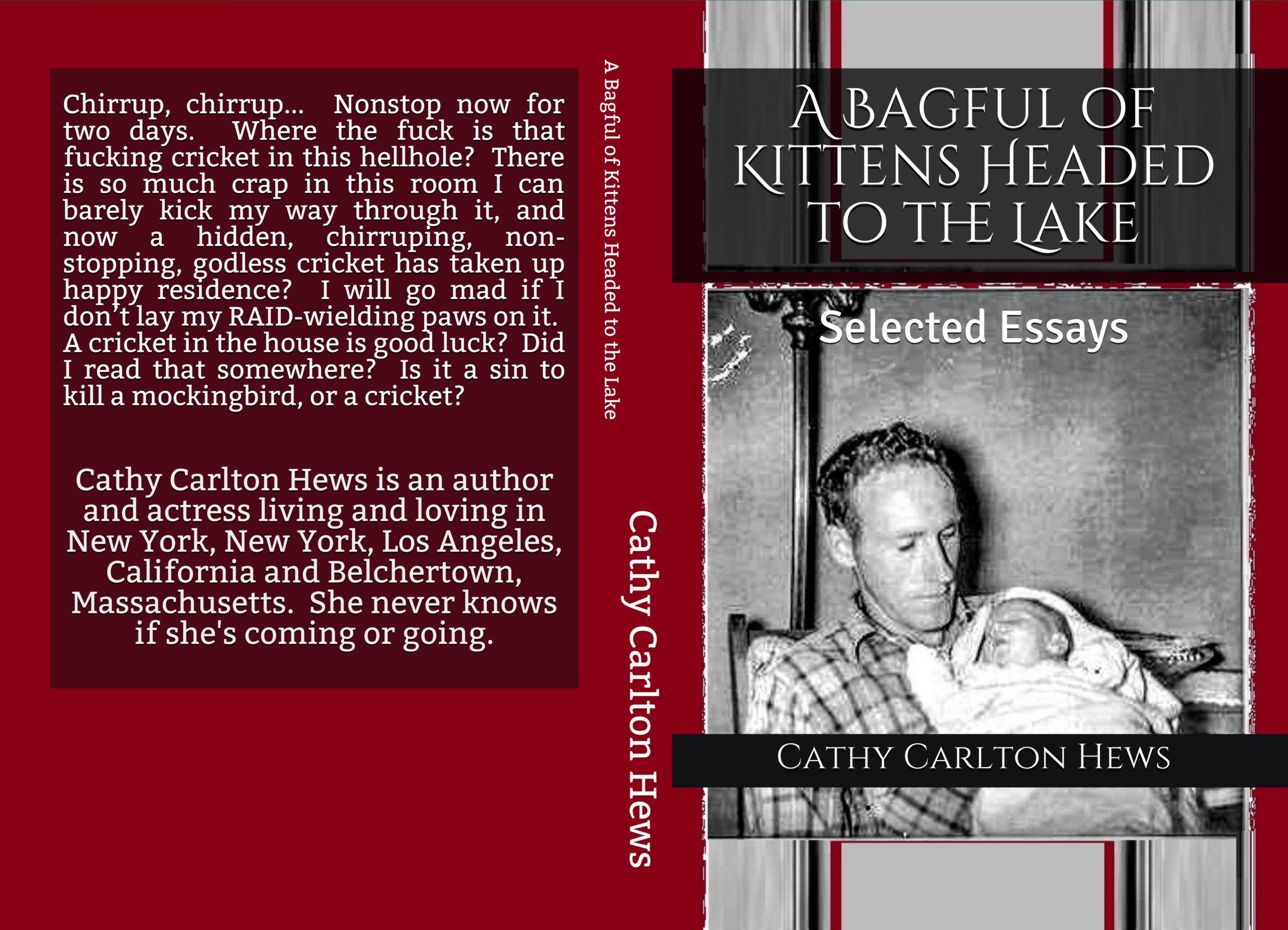Betty’s father has late stage Alzheimer’s. It’s an ever present fact that looms over her whole life. It’s what deposited her back into her childhood home, “the Shack” as she dubs the old house in the woods. There, she must make sure her father has proper home care, gets to his doctor appointments, takes his medications, and wears his adult diapers. The poignancy and charm of A BAGFUL OF KITTENS HEADED FOR THE LAKE comes from how author Cathy Carlton Hews (Betty is her nickname) breaks the common image of the endlessly patient caretaker who knows exactly what to say and what to do in the face of mortality. To distill her point into two words: it sucks. It sucks to have to live in a rickety house full of dust and mildew. It sucks to have to constantly do the laundry of an incontinent old man. And more than anything, it sucks to see a disease, slowly but surely, take your father from you.
A BAGFUL OF KITTENS HEADED FOR THE LAKE is a collection of essays, though they flow chronologically and read well as a whole. To call the writing honest is a bit of an understatement. It can take a minute to get into the stream-of-consciousness prose, which is quite minimalist at times. But once settled in, the transcripts of Betty’s thoughts are very stirring. Though many of the essays span only a few pages, they cover a full spectrum of emotions: from grief, to fondness, to just plain annoyance at her situation. Some of the most standout pieces are the ones regarding her frustrations towards her father, having to halt her life to manage his care and his increasing listlessness as his disease progresses. The author never shies away from the unpalatable details that come from tending to an aging parent who is losing their physical and mental functions, or how reluctant she is to see him in that state. The hardships and stress, juxtaposed to her devotion and warm memories, makes for an incredibly human and authentic expression of the space before and after loss.
Each essay in A BAGFUL OF KITTENS HEADED TO THE LAKE serves as a snapshot of Betty’s bond with her father, and how his limited days re-contextualizes her memories of him. Some pieces are brief, some are long, but all are a painfully honest glimpse into the onslaught of emotions that come with caring for an ill parent.
~Yi Zou for IndieReader


